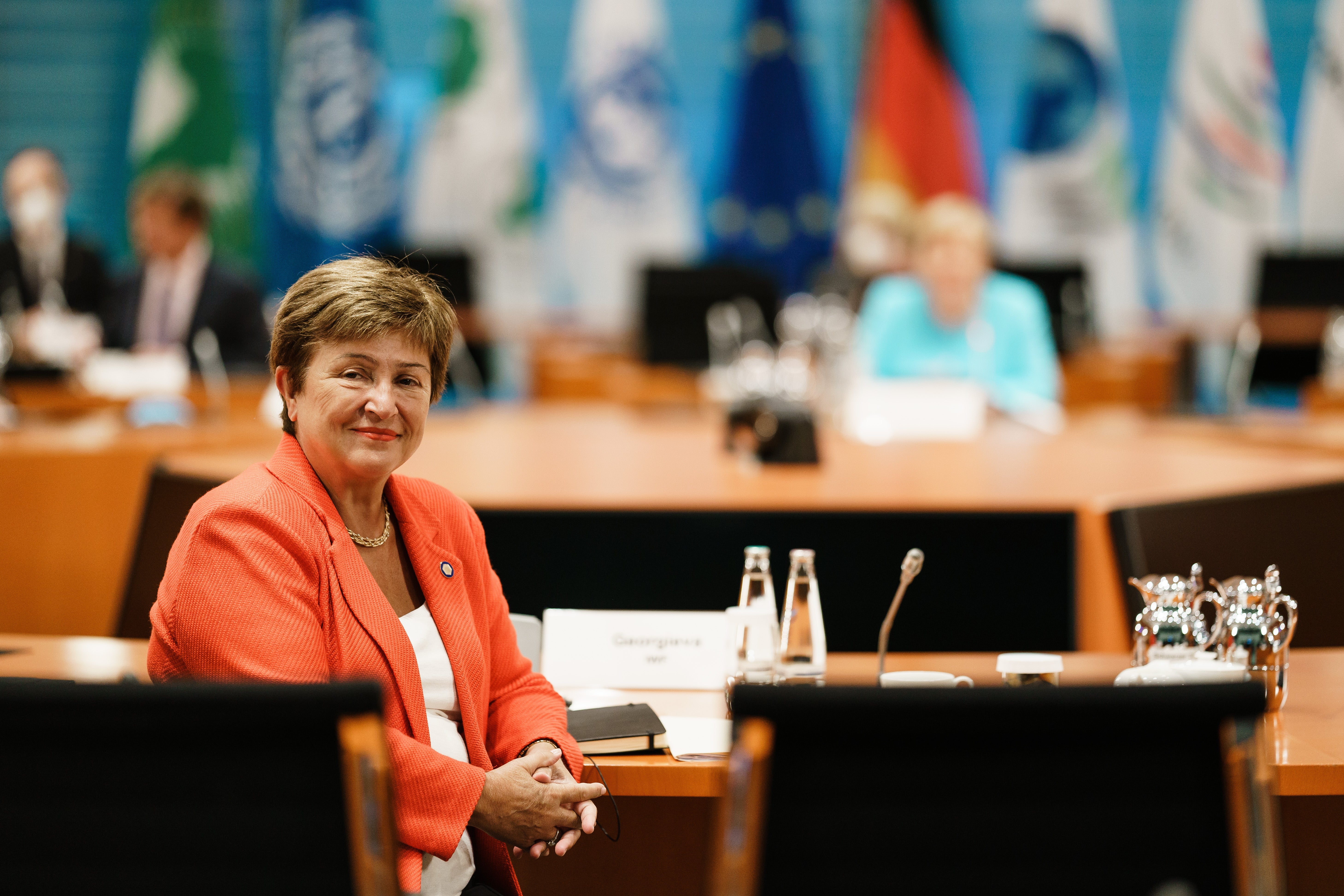Recent row at IMF and World Bank highlights need for wider leadership gene pool
Kristalina Georgieva has kept her job at the IMF but Europe’s handle on the position remains an absurdity, writes Phil Thornton


As the old Arabian proverb holds: “The dogs bark, but the caravan moves on.” A huge furore surrounding the allegations against IMF chief Kristalina Georgieva’s actions during her time at the World Bank subsided almost immediately after she was exonerated by the fund’s executive board.
She was able to launch their annual meetings with a smile on her face. A potentially momentous upheaval in the way global financial architecture is organised had been averted at the last minute.
Her resignation or ousting would have triggered a selection process for a new managing director – and a longstanding complaint by emerging and developing economies that they are not fully represented in the governance of the two multilateral financial lenders.
At the heart of the problem is that since the IMF and the predecessor of the World Bank, the International Bank for Reconstruction and Development, were born they have only been led by a citizen of a rich country.
In fact, a “gentlemen’s agreement” struck at the Bretton Woods summit in 1944 as the Allied powers were preparing the ground for a post-war financial system that guaranteed an American the Bank. In exchange, all 12 leaders of the IMF have been Europeans.
Around a decade ago, protests led the IMF and bank to set up an “open, merit-based, and transparent” selection system.
In 2011, Christine Lagarde, the former French finance minister, prevailed over Mexican central bank governor Agustin Carstens to get the IMF job. A year later there was a three-way contest for the top job at the bank. Jose Antonio Ocampo of Colombia and Ngozi Okonjo-Iweala of Nigeria ran, Korean-born US citizen Jim Yong Kim won. The duopoly was clearly intact.
Amid the row, an alliance of 100 civil society organisations and academics signed a letter calling – among many other reforms – for an end to what it called an “undemocratic informal colonial” agreement.
Luiz Vieira, coordinator of the Bretton Woods Project network and one of the signatories, wants to see an end to the “gentleman’s agreement”. “One of the key things is to base the leadership selection on actual merit, rather than nationality,” he says.
Mark Sobel, US chair of financial thinktank Omfif and a former US executive director of the IMF, said after the executive board’s decision that public trust in international financial institutions had eroded.
He added that US and European leadership of the bank and IMF at times had been less than stellar. Paul Wolfowitz resigned in 2007 after it was found he violated several staff rules. Twelve years later Kim stepped down three years early to take up a private sector opportunity.
Over at the IMF, former French minister Dominique Strauss-Kahn resigned in 2011 after being arrested for alleged sexual assault although the charges were subsequently dropped.
Sobel echoed civil society by saying the jobs should be opened up “to the world”. Imagine a future IMF run by the globally respected Singaporean senior minister Tharman Shanmugaratnam or former Bank of England governor, Canadian Mark Carney, he says. Or a World Bank run by Indonesia’s finance minister Sri Mulyani Indrawati.
For now, there will be no contest for the top jobs until Georgieva’s term comes up for renewal in October 2024 and World Bank president David Malpass’ expires in April that year.
Paul Cadario, a fellow at the Munk School of Global Affairs and Public Policy at the University of Toronto who knew Georgieva when they were both at the World Bank, says there is no reason why the two bodies could not set up a search committee and hire an executive search firm.
“You invite suggestions to the committee on a confidential basis. The executive search firm comes out and does an evaluation of these people’s merits – not their political clout but how do these people manage,” he says.
However that would require a commitment by shareholders to a genuinely open selection process. The US and Europe see these posts as important political assets and will not easily give them up.
This reluctance would be exacerbated by the fact that the country that would be keen to put forward its representatives would be China. It is currently massively under-represented in terms of its vote share on the bank’s and fund’s executive boards (the US and Europe are over-represented) and will expect to have that share increased when the next review ends in 2023.
As Cadario says: “Three years from now China might say ‘we have a very good candidate and, on the basis of an open, transparent, merit-based selection, we insist that our candidate be considered by the board’.”
But the picture is further clouded by the fact that China was at the centre of the Georgieva debacle. She was accused of putting pressure on staff at the World Bank, where she was CEO at the time, to alter data to favour China in its now-defunct Doing Business report. Politicians on both sides of the aisle in Congress think China already has too much say in the bank and fund.
The most likely outcome is that the caravan will trundle on into 2024, with the 80th anniversary of the Bretton Woods agreement marked by continued Americana and European leadership on the bank and fund. But the dogs will continue to howl.






Join our commenting forum
Join thought-provoking conversations, follow other Independent readers and see their replies
Comments